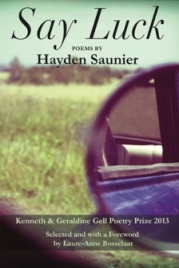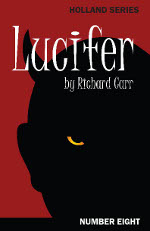The poems in Doris Ferleger’s first collection, Big Silences in a Year of Rain bear a level of seriousness, responsibility and impact—and a heavy dose of insight. They dwell on memories and moments, usually painful ones, with both an astuteness and humanity that will prove rewarding to the reader. Professionally, Ferleger is a psychologist, so it’s probably no coincidence that many of the poems in this collection deal with suffering, loss, anticipation of loss and the methods of coping with all of the above. 

Many of the poems, particularly those in the first section, deal directly or indirectly with the poet’s heritage as the child of Holocaust survivors.
In “Victory” she writes:
My father considered
himself a success
when he found his children
still breathing. Each night
another victory over Hitler.
I learned early
to pretend I was sleeping,
to not be a burden.
In this collection we find a mix of narratives and lyrics, family histories, odes and elegies. She’s a deeply engaging writer, both of the world and people around her and of the perceived reader. While many contemporary poets seem to hold the reader almost in contempt, as if the act of communicating is a sort-of afterthought to the poem, Ferleger’s poems are meant to be affective. That’s something I like in Jack Gilbert, in Mark Strand and Betsy Sholl; and it’s something I especially like here.
Ferleger is not afraid of opening up, of revealing more about her life in a short poem than many people will reveal to friends they’ve known for years. That doesn’t make these confessional poems, truth for shock appeal. No, in these pages the poet’s spiraling toward truths comes across as a way of life, or, more likely, a way of dealing with life.
From “To Try Again”
Almost unbearable, this body,
unbearable the weight of this
snow cover
thick as a lover’s absence
on a spring day
when you have lost
the one you have slept
and eaten with longer
than three childhoods,
There are many times the reader feels invited into a family conversation, but these are heavier conversations than most families probably have at the dinner table. These are the moments that seem at once oppressive and also extraordinarily generous.
From “Scared”
Last night our son spoke to me
in a bristly tone but it didn’t
scrape me down this time. I just
said whoa, like that, a big whoa
came out of me in one short punching
breath. He stopped, even nodded.
My mouth felt like it could
blow away rock coral.
This poet is knows how to charge her language with emotion, but not sentimentality. Her imagery can be spiritual and concrete and compassionate, and clearly lived. This is not the book of a passive observer, and she chooses her words carefully to communicate that intensity. In “Oh Sages” Ferleger describes a scene in which a woman falls, dying, into the poet’s arms:
as she fell into my arms,
and she let go the last
particles of her supper,
leaving me there
to hold her bones, fat, flesh
the soul always leaves
to the care of failures?
its impermanence. I can definitely see the sun setting on so much of what he describes where we can find such things as “a gossiping spring between rocks…” (“The Children Discover a Spring Between Rocks”). And also perhaps, ever so vaguely, there is a yearning for a terribly remote and tenuous unfallen past. A garden that was probably already beginning to petrify moments after its creation.






